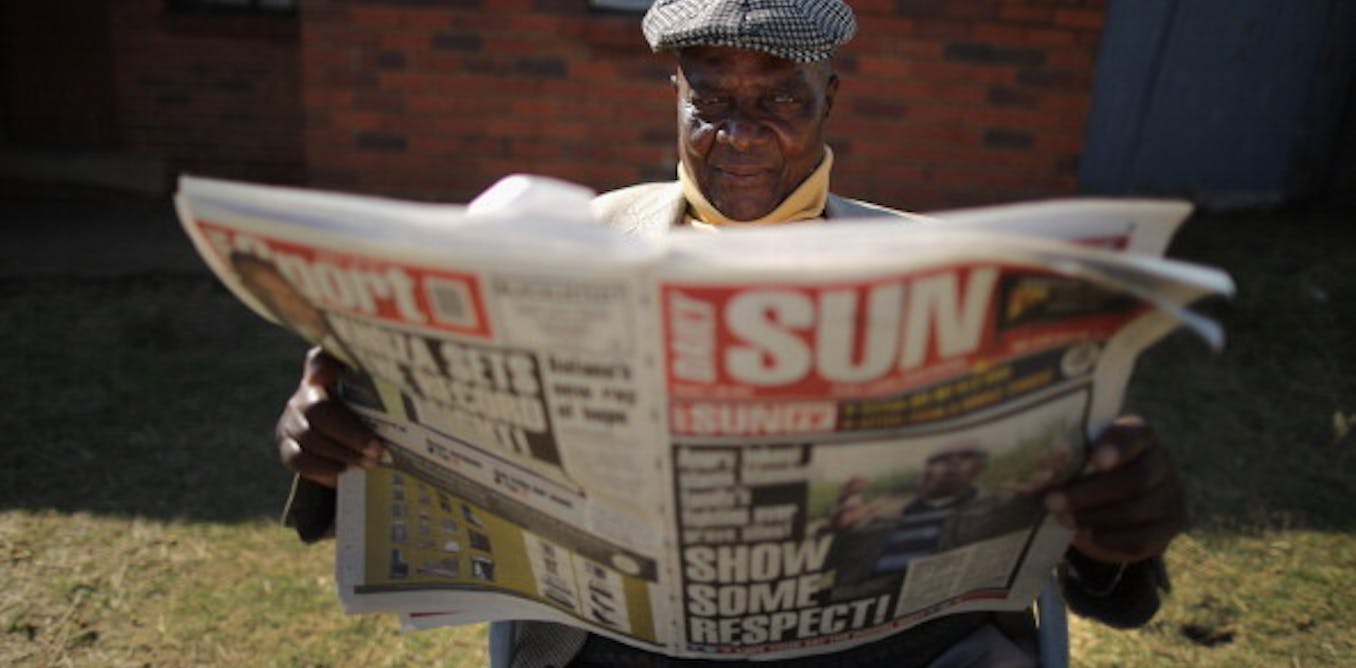The Only Guide to South African Current Events
The Only Guide to South African Current Events
Blog Article
Some Of South African Current Events
Table of ContentsThe 7-Minute Rule for South African Current EventsThe Best Strategy To Use For South African Current EventsGetting My South African Current Events To WorkAbout South African Current EventsThe South African Current Events Statements
The Limpopo Mirror is published in Louis Trichardt, a community in the north of South Africa's Limpopo district. Image: Anton van Zyl Today the Competition Commission is penetrating how on the internet news is affected by AI chatbots, search and advertising and marketing innovation. The result of the hearings is necessary for the future of information reporting in South Africa.
Registrations and sales of specific duplicates were typically meant to cover this, but the actual cash was advertising and marketing - and for some publications, like the Cape Argus in Cape Town, the classifieds. South African current events. The marketers funded the news, whether in a nationwide day-to-day, or a little once a week paper distributed in a rural community
In the areas this revenue paid for the reporter to attend the monthly council conference, cover college occasions and check out the court to figure out that might have ended up on the wrong side of the legislation. Consider example the Limpopo Mirror, a weekly newspaper released in Louis Trichardt which among us, Anton, has.
We 'd commonly offer simply over 8,000 duplicates. The expense of printing was roughly 15% to 20% of our turnover. That has actually gone up to 30% and 35%. The ad loading (the percent of space devoted to advertising and marketing instead of information) was in between 50% and 60%. South African current events. This has dropped to below 30% and some weeks we don't also reach 20%.
Little Known Questions About South African Current Events.
The decrease in advertising results in less pages in the newspaper, and less area for newspaper article. As the web became significantly popular, papers started releasing their stories online, normally cost-free. Limpopo Mirror was just one of the first newspapers in the country to publish a website with weekly news updates.
In the starting the majority of us were driven by experimentation and the thrill to be early adopters so we didn't lose to the competition. There was no viable company version. Adverts were uncommon and it took a while before this ended up being the major means people review their news.
South African Current Events - Truths
It was convenient, instant and typically complimentary, especially as the cost of data dropped. At the very same time, purchases of printed newspapers started to decline. A few instances: In 2006 the Sunday Times was the greatest weekend break paper in South Africa, with an audited circulation of just over half a million copies.
This included even more than 11,000 electronic duplicates. The Daily Sunlight was when the largest marketing daily, and in the last quarter of 2007 flaunted a circulation of over 513,000 duplicates. In 2014 it went down to continue reading this listed below 13,000 offered copies and transformed its distribution technique. This has actually been the fad for the majority of long-running papers on earth.
The freesheet version does not work well in informal negotiations or rural locations. Bulk decreases of newspapers have actually to be dropped off at purchasing centres, for example, and waste of these is high.
To create a paper has ended up being very costly, which implies advertising tolls have actually had to boost. To go was the classified areas of papers.
South African Current Events - An Overview
While this was all occurring, papers such as the Limpopo Mirror tried to maintain up. Print blood circulation dropped to around the 4,000 mark, the viewers did not move away.
The obstacle was to turn that audience into an earnings model that would certainly pay for top quality journalism. view publisher site In South Africa, unlike a few other components of the globe, there is not a society of spending for information. South African current events. Subscription designs gave some remedies in Europe, but right here it is presently not a sensible choice.
Social media keeps journalists on their toes. There is no information to verify this, it seems to us that errors are found much more promptly, and unethical behaviour attacked on with higher vigour nowadays. The low cost of entry has actually also allowed brand-new sorts of information magazines to start, like GroundUp, which Nathan modifies.
Not known Details About South African Current Events
These would have been a lot harder to run in the age of print. But they are all non-profit organisations, mostly moneyed by large institutional donors. They do not depend upon offering their item to survive and the restriction to the amount of such organisations can exist has actually possibly been gotten to. Why is advertising not working for information magazines? Marketing profits has been ruined primarily by Google Ads and social media adverts.
BNN is a news author. Their news stories continually rank extremely on Google Information searches.

Days after Anton's special info tale was published we both looked "Vhembe" (the area where Anton records from) on Google Information. The BNN variation of the tale constantly showed up near the top of the search engine result. The authentic variation really did not. This is but one example. Commonly BNN newspaper article, plagiarised and relatively rewritten by ChatGPT or a few other AI chatbot, appear higher in Google search than their real counterparts.
Two various Google items drive this rip-off: Google Look drives viewers to BNN; Google Advertisements gives the incentive for BNN's parasitic business version. Far in 2024, 72% of GroundUp's website traffic has come to our site by means of search engines. Google is accountable for 99% of that. This is either straight using Google Browse or via Google Discover that is installed on all Android phones.
Report this page